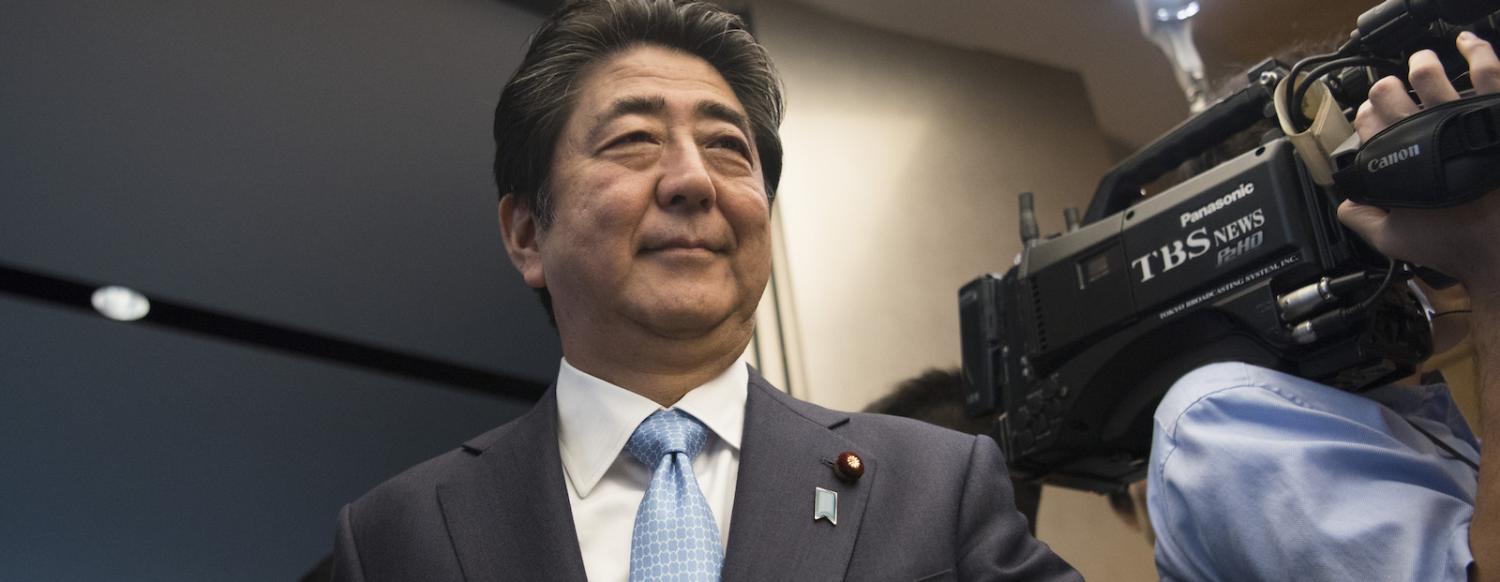According to numerous commentators, the country happiest with the “no deal” outcome for the Kim-Trump summit in Hanoi last week was Japan. Fearful that President Donald Trump, in his pursuit of a big win, would not keep Japanese interests in mind, many in Tokyo expected the worst. Instead, Japanese leaders joined in relief to sing with the “no deal is better than a bad deal” chorus.
North Korea is still a nuclear-armed state with ample capability to threaten its neighbours – not least Japan – with weapons of mass destruction.
It is true that the summit averted some bad outcomes for Japan. However, based on a week’s worth of high-level consultations in Tokyo just prior to the Hanoi meeting, it is clear certain challenges are not going to go away. These include the continued threats emanating from North Korea as well as upcoming challenges in US-Japan relations. Japanese observers believe these concerns will likely intensify over the coming year.
Let’s begin with North Korea. The facts on the ground have not changed much for Japan and could get worse. Even after a year of negotiations, envoy exchanges, secret meetings, and two high-profile summits between Washington and Pyongyang, North Korea is still a nuclear-armed state with ample capability to threaten its neighbours – not least Japan – with weapons of mass destruction. Indeed, North Korea has continued to produce ballistic missiles and expand its stockpile of weapons-grade nuclear material. In the run-up to the Hanoi meeting, the US President seemed to suggest that he could accept this situation over the long-term and is in “no rush” to see to the denuclearisation of North Korea. Indeed, the very definition of “denuclearisation” remains unsettled. None of this is good news for Tokyo.
In addition, the public record is unclear whether any of Japan’s particular concerns regarding North Korea – including dismantlement of its shorter-range ballistic missiles which can hit Japan and facilitating closure on the fate of Japanese abducted by the North Korean regime some 40 years ago – were pressed forward as part of the Hanoi discussions.
Meanwhile, South Korea and China will likely prioritise economic assistance programs with North Korea as the best way to stabilise the peninsula and will not press hard in the near-term to roll back Kim’s weapons arsenal. And, consistent with pledges made at the first Trump-Kim summit, it has been confirmed that the United States will cancel major military drills with its South Korean ally and replace them with smaller exercises. In short, it looks like Japan will have to live with the North Korean threat for the indefinite future.
Beyond concerns about Trump’s approach to North Korea, there are other potential problems looming ahead for US-Japan relations. Of immediate concern in Tokyo is Washington’s insistence to conclude a bilateral trade agreement to include highly sensitive sectors for Japan such as agriculture and autos. No doubt to the chagrin of Prime Minister Shinzo Abe, Trump made a point of bringing up America’s “very unfair situation” on trade with Japan during his departing press conference in Hanoi.
In addition, many officials in Japan noted that negotiations to renew Japan’s host-nation support will need to start before the end of this year. These officials were optimistic they would not be as contentious as the recent US-South Korea negotiations over the same issue. But they also acknowledged that the negotiations would nevertheless be politically sensitive in Japan as well as for US-Japan alliance relations, especially if Team Trump chooses to force unreasonable concessions in order to score political points back home.
In spite of these anxieties, the US-Japan relationship remains stable. Much weight is placed in Tokyo on the personal rapport Abe has established with his counterpart in the White House. That said, the broader public mood in Japan toward Trump has soured considerably. Recent polling by the Pew organisation shows that only 30% of the Japanese population have confidence in the US president to “do the right thing in world affairs”, a precipitous decline from 78% in the last year of the Obama administration.
In part as a response to these concerns, Australians should expect Japan to reach out even more actively in the coming year to develop more productive ties with neighbours such as China and Russia. Tokyo is also keen to deepen relations with key partners such as Australia, including in such areas as defence technology, intelligence-sharing, military-to-military cooperation, and financing of infrastructure projects in the Indo-Pacific. Given Japan’s commitment to regional stability, prosperity, development, democratic governance, and the rules-based order, Canberra should embrace the opportunity to deepen relations with this strategically important partner.
The author was invited as the guest of the Japanese Ministry of Foreign Affairs for a week of briefings and consultations in mid-February 2019 with senior government officials, parliamentarians, former government officials and military officers, journalists, think tank experts, and scholars.

